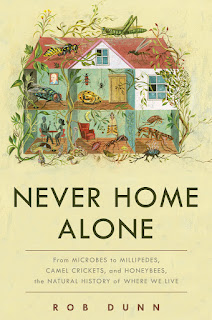Economies might do well to emulate at least some aspects of biological ecosystems. Our American economy has somehow managed to magnify the undesirable characters of ecosystems while failing to adhere to the fundamentals that make such systems work. Meanwhile, our economy is undermining natural ecosystems that are the foundation for the economy.
Before I proceed farther, in accordance with a recently self-imposed personal law, I must disclose that I fall into the category of white privilege. It is important to remind myself that however I perceive my own circumstances and point of view, my status, for lack of a better term, is still greater than it should be when compared to other demographics that are not Caucasian nor male nor straight, and so forth. We need to hear those voices also.
How can one claim that economies are in any way like ecosystems? There are many similarities, but the most obvious is the idea of niche. Ecosystems are full of niches, each occupied by one or more species. Some, mostly plants and marine algae, are producers that take energy from the sun and convert it to biomass. Other organisms consume those plants, while still others feed on the first tier of consumers in what is properly known as the food web. Decomposing organisms help recycle deceased organisms back into the soil.
Economies are full of niches, too, but all of those niches are filled by one species: Homo sapiens. Niches in economies are called “jobs,” but it goes beyond that if only because, increasingly, one person may hold more than one job such that they can have the ability to consume more (or break even). Further, machines are filling more and more niches formerly occupied by persons as a result of automation. Society functions best when we do not limit the definition of an individual to their occupation. Human economies are more than simple transactions involving goods and services, they involve investments of intangibles like emotions and social capital.
The most profound similarity between ecosystems and economies is currency. The currency of ecosystems is energy, pure and simple. The currency of an economy is money. The only way an ecosystem functions properly is if energy flows freely, cycling ceaselessly for the benefit of all organisms. There is very little banking of energy, at least in the short term. Look at water and carbon in the natural world and they cycle endlessly.
Meanwhile, in the American economy at least, money is not viewed as energy. It is seen as power, and therefore hoarded, failing to flow as it should, despite the claims of those who subscribe to “trickle down” economics. The tap is perhaps dripping randomly. Worse yet, it is often only those in the white privilege category that receive any sustenance at all. This causes a cascade of negative effects that further erodes the economy. Entire segments of society are left without niches to fill, and therefore no way to participate in any part of the economic cycle, from production to consumption.
Among the negative side effects of an exclusionary economy is the rise of predators, parasites, thieves, and other criminal enterprises. While predators, for example, are one category of niches in natural ecosystems, there should be no place for them in an economy. When crime becomes a survival strategy, it is time to re-think the structure of our economy, question our aspirations to gratuitous material wealth, and tolerance for continued economic injustices.
One insistence of capitalist economies that is completely incompatible with natural ecosystems is the idea of infinite growth as the ideal. There can be no such thing, as human history has demonstrated repeatedly with the collapse of one civilization after another. Failure to accept the finite nature of natural resources, and/or partition them responsibly, has led to the fall of many empires, and it would appear that this is now a genuine threat to the entire globe.
Markets, like the biosphere, are also finite, despite efforts to expand them. Furthermore, while we claim allegiance to the idea of the “free market,” there is in reality no such thing. Were it true, then the U.S. auto industry, multinational banks, and other American corporations would have failed by now. Instead, we prop up those businesses artificially through government bailouts, tariffs, and other subsidies as corporate welfare that is deemed acceptable while social safety nets are allowed to unravel or are intentionally dismantled.
What does all this mean? It means that we need to look more critically at how we live our lives, what constitutes our premiums (Convenience? Value?), and perhaps seek to align our economy more with the functioning of the natural world. It is not a question of prosperity versus austerity, unless you are the ultra-privileged and your idea of austerity is one less yacht.


